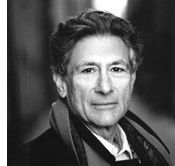參考書目
王欽譯(2016)。《新自由主義簡史》。上海︰上海譯文。(原書Harvey, D. [2005]. A Brief History of Neoliberalism. Oxford, UK: Oxford University Press.)
王蘇生、盧起譯(2004)。《西蒙娜.韋依》(上、下冊)。上海:上海人民。(原書Petrement, S. [1997]. La vie de Simone Weil. Paris, FR: Fayard.)
孔繁雲譯(1999)。《湖濱散記》。台北:志文。
李賦寧、王恩衷譯(2012)。《現代教育和古典文學:艾略特文集.論文》。上海:上海譯文。
朱生堅譯(2006)。《人文主義與民主批評》。北京:新星。(原書Said, E. [2004]. Humanism and Democratic Criticism. New York, NY: Columbia University Press.)
朱崇旻譯(2017)。《不能光說No》。台北:時報。(原書Klein, N. [2017]. No Is Not Enough.A Brief History of Neoliberalism. London, UK: Penguin Books.)
李展開譯(1989)。《摩西與一神教》。北京:三聯書店。(原書Freud, S. [1939]. Moses and Monotheism. New York, NY: Vintage Books.)
易鵬譯(2004)。《佛洛伊德與非歐裔》。台北:行人。(原書Said, E. [2003]. Freud and Non-European. London, UK: Verso.)
吳鱗綬、周新建、高艷婷譯(2014)。《摹仿論──西方文學中現實的再現》。北京:商務印書館。
萬冰譯(2005)。《全世界受苦的人》。南京:譯林。(原書Fanon, F. [1967]. The Wretched of the Earth. New York, NY: Penguin Books.)
許瑞宋譯(2016)。《資本社會的17個矛盾》。台北︰聯經。(原書Harvey, D. [2014]. Seventeen Contradictions and the End of Capitalism. New York, NY: Oxford University Press.)
周大昕譯(2017)。《世界的邏輯》。北京︰中信。(原書Harvey, D. [2016]. The Ways of the World. New York, NY: Oxford University Press.)
高志仁譯(1998)。《西方正典》。台北:立緒。(原書Bloom, Harold. [1994]. The Western Canon: the Books and School of the Ages. New York, NY: Riverhead Books.)
中共中央馬克思恩格斯列寧斯大林著作編譯局譯(1995)。《馬克思恩格斯全集》第一卷。北京:人民。
陳奎德、夏明(編)(2010)。《自由荊冠──劉曉波與諾貝爾和平獎》。香港:晨鐘。
單德興譯(2005)。《權力、政治與文化──薩依德訪談集》。台北:麥田。(原書Said, E. [2002]. Power, Politics, and Culture: Interviews with Edward Said. New York, NY: Vintage Books.)
彭淮棟譯(2015)。《浮士德博士:一位朋友敘述的德國作曲家阿德里安.雷維庫恩的生平》。台北︰漫步。(原書Mann, T. [2010]. Doktor Faustus : das Leben des deutschen Tonsetzers Adrian Leverkühn, erzählt von einem Freunde. Frankfurt am Main : S. Fischer.)
曹俊峰譯(2017)。《新音樂的哲學》(第五版)。北京:中央編譯。(原書Adorno, T. [1975]. Philosophie der neuen Musik. Frankfurt am Main : Suhrkamp.)
張峰譯(1993)。《否定的辯證法》。重慶:重慶。(原書Adorno, T. [1984]. Negative Dialektik. Frankfurt am Main: Suhrkamp.)
趙汀陽、德布雷(2014)。《兩面之詞︰關於革命問題的通信》。北京︰中信。
劉曉波(2006)。《單刃毒劍──中國民族主義批判》。台北:博大。
魏柯玲、劉莉譯(1994)。《顧爾德面面觀》。台北:世界文物。
Adorno, T. & Mann, T. (2006). Correspondence 1943-1955( N. Walker, Trans.). Cambridge, UK: Polity.
Adorno, T. (2002). Essays on Music (S. H. Gillespie, Trans.). London, UK: University of California Press. (Original work published 1937)
Auerbach, E. (2003). Mimesis: The Representation of Reality in Western Literature(W. R. Trask, Trans.). Princeton, N. J.: Princeton University Press.
Ali, T. (2006). Conversations with Edward Said. Oxford, UK: Seagull Books.
Barenboim, D. & Said, E. (2004). Parallels and Paradoxes: Explorations in Music and Society. New York, NY: Vintage Books.
Benjamin, W. (1968). Illuminations(H. Zohn, Trans.). New York, NY: Schocken Books.
Benjamin, W. (1978). Reflection: Essays, Aphorisms, Autobiographical Writings(E. Jephcott, Trans.). New York, NY: Schocken Books.
Fanon, F. (1967). The Wretched of the Earth.( C. Farrington, Trans.). New York, NY: Penguin Books.
Habermas, J. (2006). The Divided West (C. Cronin, Trans.). Cambridge, UK: Polity.
Harvey, D. (2005). A Brief History of Neoliberalism. Oxford, UK: Oxford University Press.
Harvey, D. (2014). Seventeen Contradictions and the End of Capitalism. New York, NY: Oxford University Press.
Kant, I. (1929). Critique of Pure Reason (N. K. Smith, Trans.). London, UK: Macmillan.
Kant, I. (1970). Kant's Political Writing (H. B. Nisbet, Trans.). Cambridge, UK: Cambridge University Press.
Poirier, R. (1987). The Renewal of Literature: Emerson Reflections. New York, NY: Random House.
Rawls, J. (1996). Political Liberalism(2nd ed). New York, NY: Columbia University Press.
Rawls, J. (1999a). A Theory of Justice: A revised edition. Cambridge, MA: The Belknap of Harvard University Press.
Rawls, J. (1999b). The Law of Peoples: with the Idea of Public Reason revisited. Cambridge, MA: Harvard University Press.
Said, E. (1979). Orientalism. New York, NY: Vintage Books.
Said, E. (1985). Beginnings: Intention & Method. New York, NY: Columbia University Press.
Said, E. (1991). The World, the Text, and the Critic. London, UK: Vintage Books.
Said, E. (1992). The Question of Palestine. New York, NY: Vintage Books.
Said, E. (1994). Culture and Imperialism. New York, NY: Vintage Books.
Said, E. (2001). Reflections on Exile and Other Essays. Cambridge, MA: Harvard University Press.
Said, E. (2003). Culture and Resistance. Cambridge, MA: South End Press.
Said, E. (2004a). Humanism and Democratic Criticism. New York, NY: Columbia University Press.
Said, E. (2004b). From Oslo to Iraq and the Road Map. New York, NY: Vintage Books.
Said, E. (2006). On late Style: Music and Literature Against the Grain. New York, NY: Pantheon Books.
Said, E. & Said, M., (Trans.). (1969). E. Auerbach. Philologie der Weltliteratur. Centennial Review, 13(1), 1-17.
Said, M. (2008). Preface: Edward and Istanbul. In M. G. Sokmen & B. Ertur(Eds.), Waiting for the Barbarians: A Tribute to Edward W. Said (p.viiii-xi). New York, NY: Verso.
Spitzer, L. (1948). Linguistics and Literary History: Essays in Stylistics. Princeton, N. J.: Princeton University Press.
Vico, G.. (1999). New Science: Principles of the New Science Concerning the Common Nature of Nations(D. Marsh, Trans.). New York, NY: Penguin Books.
Williams, R. (1992). The long revolution. London, UK: The Hogarth Press.
Williams, R. (1993a). Culture and society. London, UK: The Hogarth Press.
Williams, R. (1993b). The country and the city. London, UK: The Hogarth Press.
Is Aesthetic Humanism as Democracy and Criticism Possible:
Edward Said’s Humanism as an Example
Herbert Wang
ABSTRACT
The Edward Said intellectual legacy will be primarily political. But the last completed book Humanism and Democratic Criticism he wrote, allows us to situate this legacy in the larger philosophical setting of his humanism. The one discussion in my article is of an epistemological cast, Said believed that self-knowledge is unattainable without an equal degree of self-criticism. The other is an ethical argument, a more democratic form of humanism—one that aims to incorporate, emancipate, and enlighten—is attainable. Once-sacred literary canon that associated with Euro-centralism and even imperialism is now more likely to be ridiculed than revered. Therefore, Said proposed the return to philology and music as the supplement about aesthetics. Said contended that words are not merely passive reception figures but vital resistance agents. On the other hand, the “West-Eastern Divan” orchestra was an aim of combining the sharing of knowledge and comprehension between people from cultures that traditionally have been rivals. In this time of heightened contradiction between globalization and exclusiveness, is the critical, democratic even aesthetic humanism possible and still effective? This project tries to demonstrate his legacy that provides a persuasive case for humanistic education on our shared intellectual heritage.
Keywords:humanism, democracy, critique, post-colonialism, aesthetics
|
* Herbert Wang, Associate Professor, Center for General Education, Chang Gung University, e-mail:w1103@mail.cgu.edu.tw |

